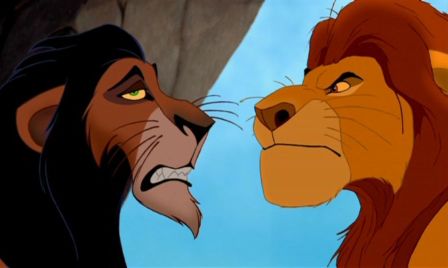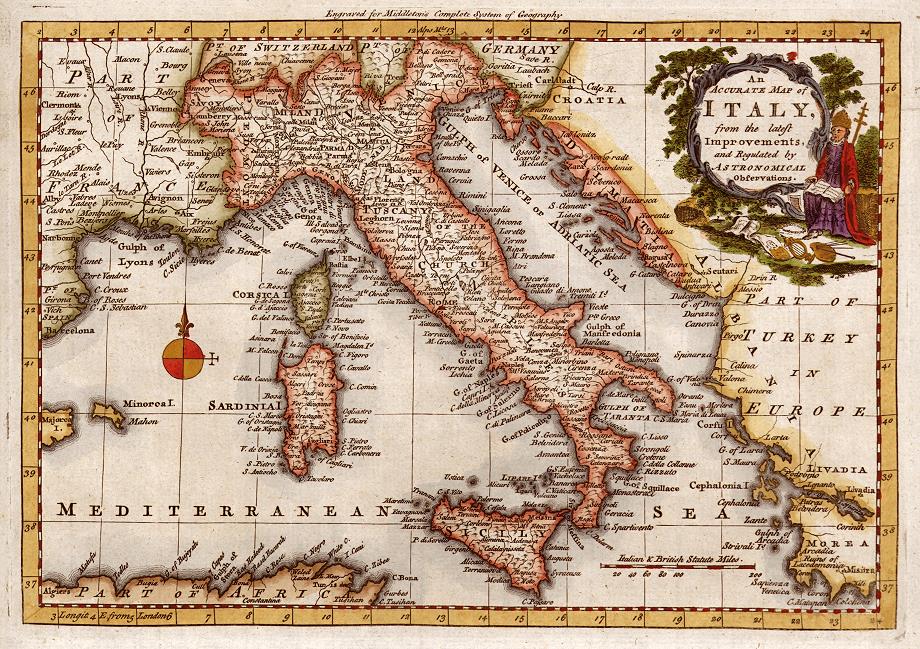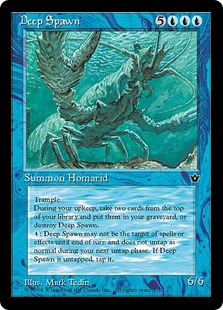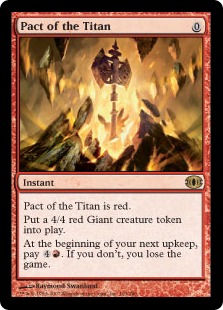“I’ll have grounds
More relative than this – the play’s the thing
Wherein I’ll catch the conscience of the King.”
If you know your Shakespeare, you’ll recognize this line from Hamlet, his longest and arguably greatest play about honor, treachery, deceit, and the negative influence of power.
If not, well…it’s from Shakespeare. He was an English dude a few centuries back. He wrote a lot of plays that you were forced to read in high school – the ones wherein you could never quite understand what the hell was being said.
Hamlet is a particular favorite for many because of its theme. The story on its surface is rather straightforward: the king dies most suddenly, and the young heir suspects his uncle killed his dad so he could steal the throne. The son then must first wrestle with his conscience over whether he should confront his uncle, and then he must figure out how he can do so successfully.

It’s the same story. Really.
At the very least, go watch The Lion King.
Hamlet has resonated over the many, many years because the theme portrayed in the drama is timeless. The corrupting influence of power is well known, extolled by artists and writers for centuries; ol’ Bill was hardly the first person to address that particular topic.
Yet Hamlet is an oft-cited piece of literature because of how well it captures the the grief of loss, the anger of betrayal, the cunning of the protagonist’s intricate plan, and the morally grey lines the main character walks. Hamlet is by no means a white knight character, and the audience watches as the character insulates himself in a blanket quest for vengeance while his own mental state comes into question.
Power. Greed. Revenge. Politics. Moral ambiguity. Betrayal – and by betrayal by family at that. This one play addresses all of these themes in some fashion and is all the better for it.
Theme, in a nutshell, is what gives an otherwise run-of-the-mill story its depth. A plot is nothing more than a skeletal story without the meaty additions of thematic elements. You can have the most fascinating characters, the most intricate dialogue, and the most spectacular exposition this side of Tolkien, but none of that matters if it doesn’t have purpose. What is the context of the conflict? What is your story trying to impart, and what should the reader take away from the presentation?
Without its themes, Hamlet is essentially just one guy babbling to himself in a castle for awhile until he gets himself and a bunch of other people killed.
Tabletop gaming runs into similar thematic difficulties. Much like differentiating a book or movie from one another, game designers these days try to be mindful of the theme they decide to use when making a new product. That wasn’t always the case. For a couple decades, an entire swath of board games focused almost exclusively on mechanics and the game system it was part of. Theme was usually tacked on as an afterthought and had little bearing on the game’s functionality on the whole. These games were generally low on player interaction and relied on the decision-making aptitude of the players over sheer luck to win. Regardless if the little pieces were corn, cotton, or moon rocks, the only thing that mattered was that you had enough to win. Because for so long these games tended to come out of Germany and surrounding European countries, the term Euro entered the gaming lexicon.

So in this case, we’ll do a thing that gets us wooden cubes. Then we move these around, oh, Italy. And that’ll get you points…somehow.
These games lacked a substantive theme, and while they proved to be engaging and challenging on a many levels, their greatest criticism was that without any sort of real thematic purpose, one early Euro seemed much like the next.
However, these games were sought after by many hobby gamers because they were drastically different than those that generally came out of the United States. American games had the opposite problem: they had great stories and settings, but they were often incredibly luck driven. They had been since the time of Monopoly. Those who favored the more Euro-styled games derided thematic American games, and over time Ameritrash came into use as well. A nerdy rivalry was born, which, in many ways continues to this day.
 What has changed, though, is that the lines of the tabletop gaming genre today are far less clear-cut than they used to be. Modern game designers who enjoy heavily thematic games have adopted more worthwhile mechanics than simply rolling a bunch of dice like you do with Monopoly, Risk, or Sorry!. Similarly, even the most ardent Euro-style designers have conceded that nowadays just about any game requires at least a moderate attempt at adding some thematic purpose.
What has changed, though, is that the lines of the tabletop gaming genre today are far less clear-cut than they used to be. Modern game designers who enjoy heavily thematic games have adopted more worthwhile mechanics than simply rolling a bunch of dice like you do with Monopoly, Risk, or Sorry!. Similarly, even the most ardent Euro-style designers have conceded that nowadays just about any game requires at least a moderate attempt at adding some thematic purpose.
As a result, tabletop gaming has seen more interest in the last few years than it has in a very long time, and the quality of the games being made has never been better. Sure, there will always be fervent supporters of one style over another, but overall this blending of ideas has made things far better for gaming as a whole.
Coincidentally, the last major massive expansion of tabletop gaming prior to now came in the mid 1990’s, fueled in part by a little game we know as Magic: the Gathering.
Since its beginning, Magic has always been one part strategic slugfest and one part creative theme. From its original storylines to the vast array of card art, Magic possesses a thematic lineage older than the ![]() symbol. It’s even been shown that the unique and creative levity provided to the early artists was one of the direct reasons for the game’s success. (Which is even more of a shame that the artists themselves had to celebrate the game’s 20th anniversary on their own since Wizards didn’t seem to want to include them.) Yes, Magic’s theme isn’t always the most coherent when you shuffle your deck and deal it out, but the idea of powerful clashing planeswalkers has been present since its very inception.
symbol. It’s even been shown that the unique and creative levity provided to the early artists was one of the direct reasons for the game’s success. (Which is even more of a shame that the artists themselves had to celebrate the game’s 20th anniversary on their own since Wizards didn’t seem to want to include them.) Yes, Magic’s theme isn’t always the most coherent when you shuffle your deck and deal it out, but the idea of powerful clashing planeswalkers has been present since its very inception.
So when you try to take all of the theme out of Magic, not only are you missing out on a large component of what makes it interesting, but you’re actively making the game less so.
What Not To Do In EDH:
- Lesson One – Overused Commanders
- Lesson Two – Abusive Combos & Staples
- Lesson Three – Abandoning Theme
- Lesson Four – Wasting Time
Lesson Three: Stop Abandoning Theme
You know what happens when you design a Magic deck that focuses entirely on winning instead of being flavorful? You wind up with a deck that wins most of the time.
But wait, isn’t the whole point of playing the game to win? If you have a good deck, isn’t that a good thing?
Well, yes and no.
Winning is a huge component of any game, and for most people the point of playing a game is to win. Winning – and losing – is an integral part of what makes games fun, and I’m not here to advocate otherwise. I wholeheartedly agree that competition is good for a game, and that processing the thrill of victory and the sting of defeat is a vital part of gaming in general. So, no, let’s not pretend Magic should be all participatory awards and everybody wins tee-ball. I’m fine with the premise that if you have a bad deck or have terrible luck that you’re going to get beat by someone else. That’s the way it should be.
What I take issue with is when you have a game like Magic that affords you the opportunity to embrace more than simply winning and you don’t take advantage of it. If you’re playing for a tournament, wherein your only goal is to achieve victory, fine; it’s aggressive but understandable. Plus, you don’t have to see that person again.
If you routinely wipe the floor with your friends in that same quest for winning, though, it becomes less entertaining, for the only choices your group has to combat that is to either play less frequently with you, create deck situations solely to stop you, or feed the ever-present TCG arms race by going out and getting even more powerful cards so that they can win before you can. None of these are ideal solutions if your intent is to enjoy yourself.
Therefore, winning at any cost should not be something you actively seek, especially in a Commander format.

Still lurking in the deep.
I once had a (non-EDH) reanimation deck which I played pretty semi-regularly. The theme was particularly rewarding for me, as I loved the idea of taking big creatures, shoving them into a grave, and then ripping them back out again. It allowed me to utilize large Timmy-friendly creatures that I likely wouldn’t have used otherwise.
I went a step further and decided that while the majority of the cards were Black (naturally), I gave myself two additional requirements to avoid the lure of simply grabbing the biggest & scariest creatures around. First, I had to have at least one creature of each color and an artifact creature. Second, if at all possible, I had to include at least one creature from each block. It’s why to this day the deck still contains Deep Spawn. These were arbitrary rules, but it was one that fit my theme of collecting zombie-like creatures from across the entire span of the game’s existence.
However, the last time I updated the deck was during Zendikar. That was when I decided to try out adding Iona, Shield of Emeria.
This turned out be a big mistake. I could routinely get her out by the third turn. Yet not only did other players dislike dealing with a card that could end a monocolored deck’s chances, but it made me lose interest in the deck. It felt cheap, like it wasn’t a fair fight. The deck was shelved shortly thereafter.
Having a thematic presence serves two major purposes. First, it shows that your focus is on building a unique and original Commander deck with your own stylistic choices. It shows you’re not just templating someone else’s ideas. Maybe you have a creature-heavy deck and really enjoy the flavor of Monkey Cage or you’re playing a group hug deck and like the idea of sharing land with a Wellspring. Or perhaps you simply can’t believe Goblin Game is a legitimate card and demand it be used more often.

See previous lesson.
Second, having cards in the deck for flavor or thematic reasons supports the notion that you’re playing the game to win and have fun. This goes a long way to illustrate that you aren’t willing to put strain on your group dynamics in order to ensure that you’re always the winner.
Maybe that means holding off on yet another mythic creature in favor of one more in line with the flavor of the deck or putting in a Hive Mind but not the cards with it that combo into instant wins.
Having thematic components to your deck doesn’t mean you throw in the towel on winning. Rather, it shows other players that you are there to play with them rather than at them, and it’ll keep people far more entertained in the long run.
Games of Commander take time to play, and if you have a regular play group, you are going to spend a lot of time at the same tables with the same people. Crafting decks that wish to be both competitive and individually tailored are the hallmark of what the format is all about.
To push theme aside entirely for the sake of power and desire to win not only shows naked ambition on your part, but it will eventually only foster negativity from those around you – sometimes even after the game ends. And since when does that ever work in your favor?
(Spoiler alert: it doesn’t.)
In the final segment, we’ll dive into one last topic to tie all of this together. Until then, may your decks have more Yorik and less Claudius.
![]()
How does theme factor into your Commander card choices? Tell us over on our social media or by contacting the author at ryan@cardboardrepublic.com
Photo Credits: The Lion King by Walt Disney Studios.
